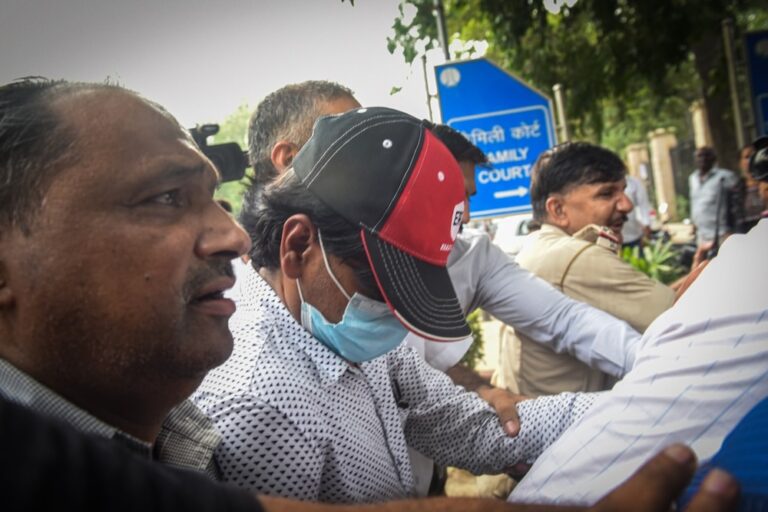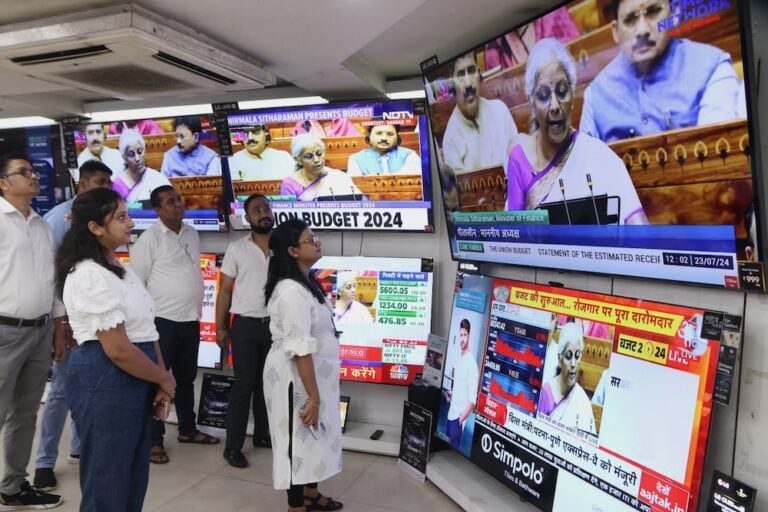A judge in the New Delhi High Court stated on 12 January he would not hesitate to block any sites that failed to crack down on offensive content, “like in China”.
(RSF/IFEX) – 13 January 2012 – Reporters Without Borders is concerned about a series of breaches of press freedom and attacks on journalists since the start of the year.
“We call on the central government to respond as quickly as possible to abuses by local authorities and officials towards the press. It is also essential that the authorities scrap their policy of monitoring the Internet, which is disproportionate and jeopardises press freedom,” the organization said.
Unwarranted desire to control the Internet
The authorities are stepping up their censorship of the Internet. A judge in the New Delhi High Court said yesterday he would not hesitate to block any sites that failed to crack down on offensive content, “like in China”.
Reporters Without Borders said: “This statement confirms our fears. For several months the Indian government has undertaken several initiatives with worrying implications for Internet freedom.
“Requiring websites to remove all offensive material is an impossible task. Some sites could well take the easy way out and block access by all Indian visitors — who can be identified by their IP addresses — or by installing a disproportionate filtering system.
“We urge the government not to enact any repressive legislation and we recall that Frank La Rue, the U.N. special rapporteur on the promotion and protection of the right to freedom of opinion and expression, has come out against excessive regulation of the Internet.
On 23 December last year, a New Delhi civil court had summoned 21 websites, including the Indian affiliates of Facebook, Google and Yahoo! for distributing “obscene and lascivious” content and ordered them to remove it by 6 February.
Google India filed a complaint on 11 January with the High Court in New Delhi, arguing that as a distributor for Google Inc., it does not have its hands on all content posted by Google, YouTube, Orkut and Blogger in India. Furthermore, this would be humanly impossible – for example, 48 hours of video is posted on YouTube every minute.
Filtering offensive content has been a recurring theme for some time. Kapil Sibal, the minister of communications and information technology, said on 6 December that the government would implement guidelines and mechanisms to prevent content that was offensive, i.e. defamatory, pornographic or containing anything illegal, being posted online.
In the last quarter of 2011, talks were held with the heads of the Indian subsidiaries of Google, Facebook Yahoo and Microsoft. The minister hoped to get them to follow a policy of self-regulation, meaning that all content published on their sites would in future be subject to preview and prior approval before publication.
Last April, the government approved what it called “IT Rules 2011” which require Internet companies to withdraw any banned content within 36 hours of notification by the authorities.
The authorities have already clamped down on several websites, such as “Cartoons Against Corruption” ( www.cartoonsagainstcorruption.com ) run by anti-corruption cartoonist Aseem Trivedi, who compiles humorous drawing criticising corruption.
In a letter dated 27 December, the company that hosts it, Big Rock, informed Trivedi that the site was being closed down because of content that insulted the Indian flag and national emblem.
The closure was a result of a complaint filed by a lawyer, R.P. Paney, with the Mumbai criminal department. Police ordered Big Rock to remove the “obscene” drawings. The hosting company has made no comment on why it closed down the entire site.
The 2005 State Emblem of India Act bans any use of the national emblem on pain of two years’ imprisonment or a fine of 5,000 rupees. The cartoonist has said he will continue to campaign against corruption and has moved his drawings to his blog.
(. . .)


